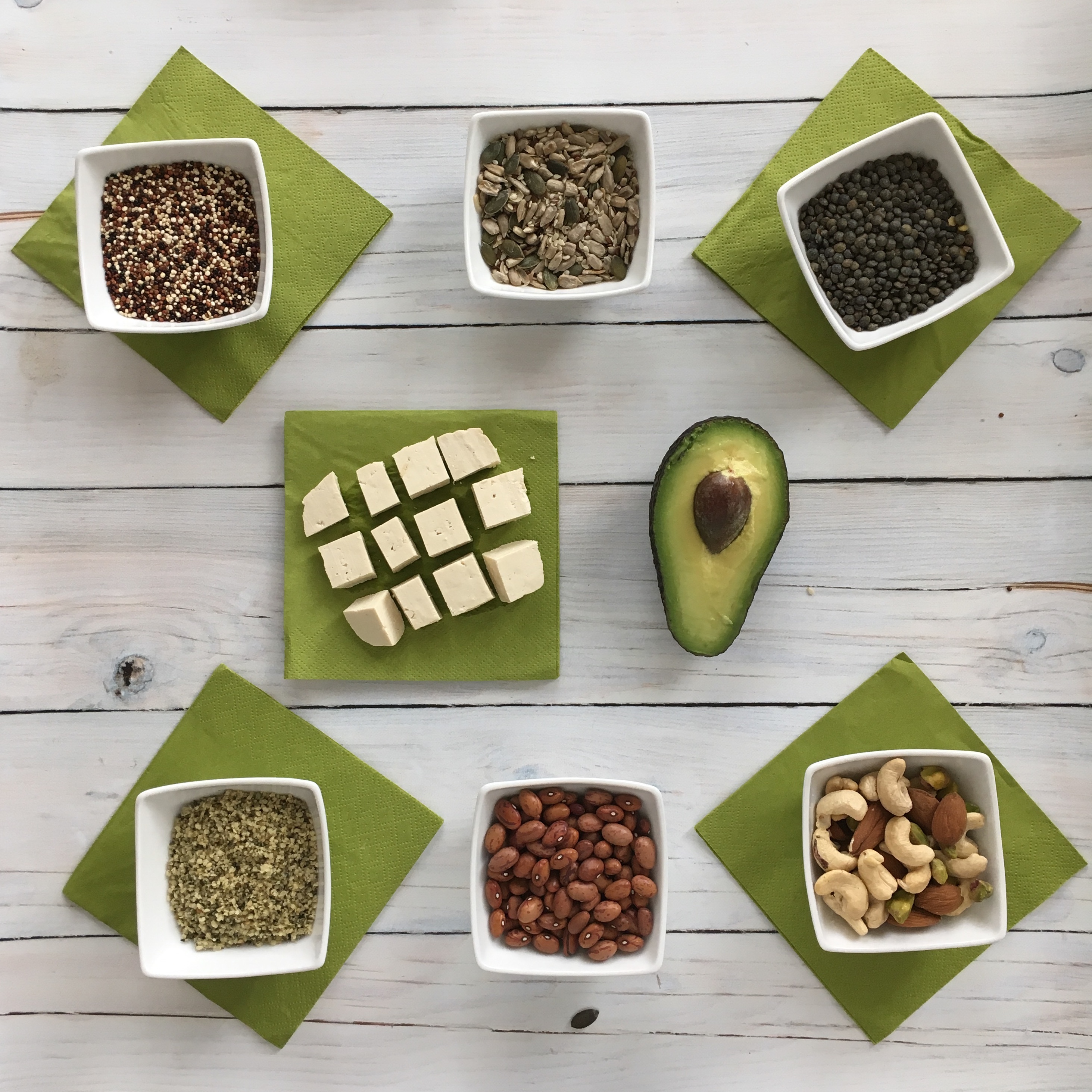
Plant foods are an amazing source of health-promoting proteins. Plant proteins including legumes, soy and nuts are high in phytosterols that can help lower cholesterol. Plant proteins also contain some amazing compounds called phytoestrogens that help balance oestrogen levels (See last week’s blog for more on phytoestrogens and their role in female hormonal balance).
When we do vegetarian workshops or advise vegan clients we focus on ensuring they are getting enough complete protein because that is what we need, protein that contains all essential aminoacids.
So if you are a veggie and eat loads of beans, that’s great but you need to know that to complete the protein in beans and pluses you need to add a grain (ideally unrefined) like wholemeal bread, oat cakes or brown rice.
Mind you, some plants do contain complete protein including quinoa (have you tried our tabbouleh yet?), amaranth, hemp, buckwheat, avocado and the wonderful chia seeds, so ensure you add some of them to your daily diet!
Just one more thing to remember, plants contain less protein per serving than animal protein so we have put a handy table together to show you how to ensure you get enough complete protein everyday!
An for the meat eaters out there… ensure you are not overdoing it on the protein side, a diet too high in animal protein can increase acidity which the body reduces by increasing mineral loss from our bones¹ including precious calcium which for women especially can become an issue after menopause². The best way to ensure your body is alkaline is to eat plenty of vegetables and ensure animal protein doesn’t add up to more than 2-3 portions a day or the equivalent of 50-60g of protein a day.
REFERENCES
¹Molina P Sabia S Touvier M Kesse E Bréart G Clavel-Chapelon F Boutron-Ruault MC (2008) Proteins, dietary acid load, and calcium and risk of postmenopausal fractures in the E3N French women prospective study Journal of Bone and Mineral Research 23 12 1915-22
²DL Schaafsma G Westerterp KR (1997) Calcium excretion, apparent calcium absorption and calcium balance in young and elderly subjects: influence of protein intake British Journal of Nutrition 77 721-729